![]() — หน้าแรก — เกาะติดข่าว
— หน้าแรก — เกาะติดข่าว
ข่าวเศรษฐกิจและธุรกิจประจำสัปดาห์
-

Once the draft regulations of the Companies Law comes into effect on August 1, 2018, existing companies registered in Myanmar have to re-register on an electronic system
Public consultations of the draft regulations end on May 31. Existing companies registered in Myanmar have until January 31 next year to re-register on an electronic system once the new Companies Law and related regulations come into effect on August 1. Draft regulations of the Companies Law, which was enacted last December, have been released by the Directorate of Investment and Company Administration (DICA). Public consultations of the draft regulations end on May 31. Feedback can be submitted by email or fax until then (dica@mptmail.net.mm, lawreform.dica.mm@gmail.com, and fax 01 658135). The law and regulations, called the Myanmar Companies (Electronic Registry System and Miscellaneous Matters) Regulations 2018, will be enacted on August 1, according to DICA. U Aung Naing Oo, DICA director general, told The Myanmar Times that the new law modernises practices and streamlines procedures for businesses, and introduces new incentives for international investors to invest in the country. -
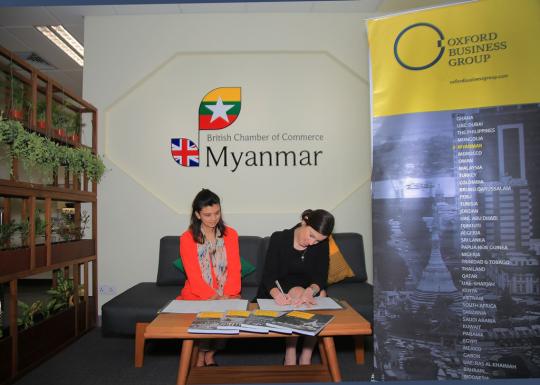
To consolidate its position as Asia' last frontier market, Myanmar needs to create a clear and transparent regulatory environment to attract investment and finance the economy (Oxford Business Group)
MYANMAR’S hopes of becoming Asia’s last frontier market would be realised only if the government could create a clear and transparent regulatory environment for attracting investment and financing the economy, according to Patrick Cooke, regional editor for Asia at Oxford Business Group (OBG), a global research and consultancy firm. “It is imperative that the government devises a viable strategy to ensure its young population is equipped with the skills and entrepreneurial mindset required to shape the future economy,” he said. Cooke said the nation must capitalise on its position between two emerging superpowers-China and India, without becoming beholden to either. He maintained optimism that Myanmar could become the fastest-growing economy in Asean in the coming years, despite a number of challenges. In the latest edition of the “Business Barometer: OBG in Asean CEO Survey”, top executives from Myanmar were among the most pessimistic about the domestic tax environment. They were most negative about business transparency levels in Myanmar, similar to the perception of those from Vietnam. -

In order to make financing more widely available, the Central Bank is steering the bank lending model away from overdraft loans with immovable assets as collateral
IN THE 20 years U Min Naing has been running his company, Doh Pyi Thit, he has never taken a loan from a bank. His is not a small business; Doh Pyi Thit has built railways, large buildings and operated mines. “When I started the company I just used my own money to cover all operations,” he said. If he needed more, he borrowed it from his family, or business partners. Then, several months ago he came across an opportunity to buy a tungsten mine in Tanintharyi Region for K230 million (around US$180,000). He decided to take out a loan to fund the acquisition and approached two of Myanmar’s largest banks. However, Min Naing found to his surprise that he was unable to meet the collateral requirements. Both banks asked him to pledge landed property as security. They said his house in Yangon, which is worth around K250 million, was unsuitable because he shares ownership. They also rejected several acres of valuable, but undeveloped, land in the industrial township of Hlaing Tharyar. “This did not hurt me too much, as I can still run my business, even if I can’t expand it. But I learned that we cannot yet rely on the banking system for loans,” he said. -
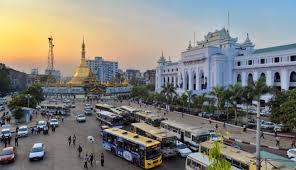
Yangon regional government strives to make Yangon the centre of investment in Southeast Asia
Yangon Region will try to become a centre of investment in Asia, according to a press conference on organising Yangon Investment Forum 2018 held at Cooperative Business Centre on May 2. “Yangon is a strategic place in Southeast Asia. Investors who want to reap profits from Myanmar, Southeast Asia, China and India need to know investment and economic opportunities of Myanmar. Yangon City is the most suitable place for investment,” a statement quoted Yangon Region Chief Minister Phyo Min Thein. He said his government would try to make Yangon a commercial hub by making best use of its advantages such as strong infrastructure and links with other cities. -
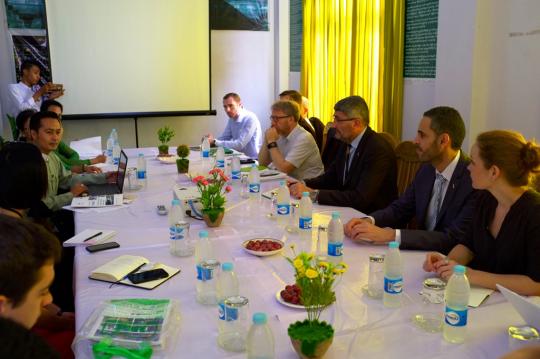
Tanintharyi regional government plans to attract European investment, mainly from French companies in core sectors: energy, construction, fisheries, tourism and agribusiness (U Phyo Win Tun, Minister of Planning and Finance)
Myanmar’s underdeveloped Tanintharyi region bordering Kanchanaburi province plans to attract European investment mainly from French companies in the months to come, according to Phyo Win Tun, planning and finance minister of the Tanintharyi region government. “At the regional government, we frequently receive business delegations from Europe, including France, Italy, Czech as well as from other countries such as Canada, Japan, China and Thailand,” he said. Last month, the authorities received a trade delegation of 12 French companies led by French Ambassador Olivier Richard. The delegation included senior executives from famous French companies with expertise in energy, construction and fisheries sectors as well as representatives from the France-Myanmar Chamber of Commerce, the French Development Agency and the economic and trade sections of the Embassy. Phyo Win Tun said the regional authorities were pleased to have fruitful discussions with such big names as Total, Artelia Group, Byma, Engie Group, Schneider Electric, Suez Consulting and Tractebel Group. -

Due to illegal exports with neighbouring countries, Tanintharyi’s fisheries industry’s potential for growth was marred
Although fishing and marine products make up the bulk of Tanintharyi Region’s GDP, illegal exports have for years deterred the industry’s potential for growth. Without new policies and oversight, authorities warn that Myanmar will continue losing millions worth of valuable fisheries exports to illegal traders in neighbouring Thailand. Myanmar fisheries play an important role under the National Export Strategy. The government has earmarked locally produced marine products as key exports for the country. Tanintharyi currently produces the largest volume of fishery products in the country. According to the latest available data, fish and prawn sales from the region’s Myeik district amounted to $9.7 million in the month of February, which is estimated to contribute more than 17 percent of the country’s total fisheries income of $55 million over the same period, according to the Ministry of Commerce. That’s the official figure. “There are illegal sales taking place at a volume that we cannot guess, resulting in lost income for the country,” said U Win Myint, director from the Trade Promotion Department under the Ministry of Commerce (MOC). -
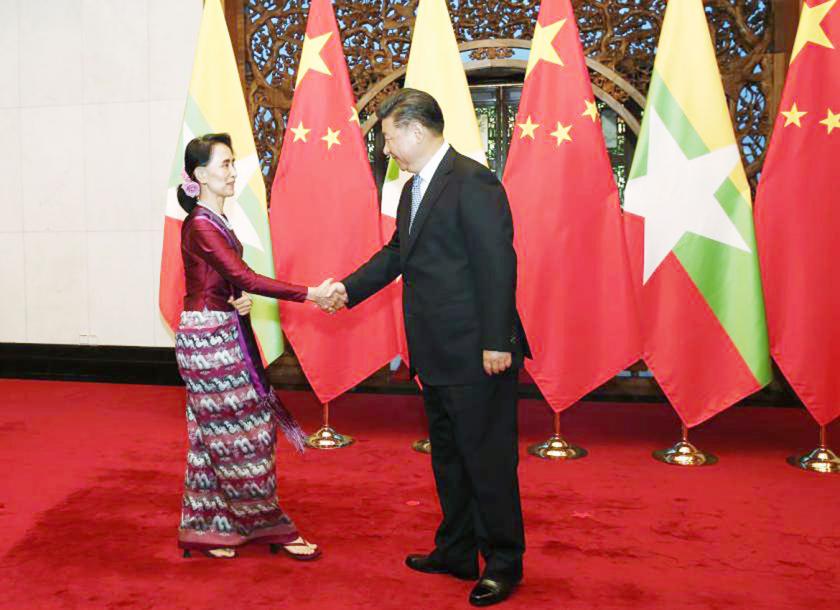
Preparations have been made for related ministries to select prioritized projects along the China- Myanmar economic corridors supported by the Beijing- led Belt and Road Initiative (U Than Aung Kyaw, Deputy Director- General of DICA)
Preparations are being made for Myanmar to select its priorities among planned projects along the China-Myanmar economic corridors supported by the Beijing-led Belt and Road Initiative, U Than Aung Kyaw, deputy director-general of the Directorate of Investment and Company Administration (DICA) told The Myanmar Times. Traders from China will be arriving shortly to carry out mutual negotiations. To prepare for the implementation of the economic corridors, discussions were held among related ministries to select the projects and prioritise some for development. “We’ve asked the respective ministries to tell us which projects they would like to cooperate along the corridor. We will focus on the negotiations of the projects first. The negotiation is about which projects our ministries will choose if the budget will only be given to one project when we negotiate with China,” U Than Aung Kyaw remarked. -
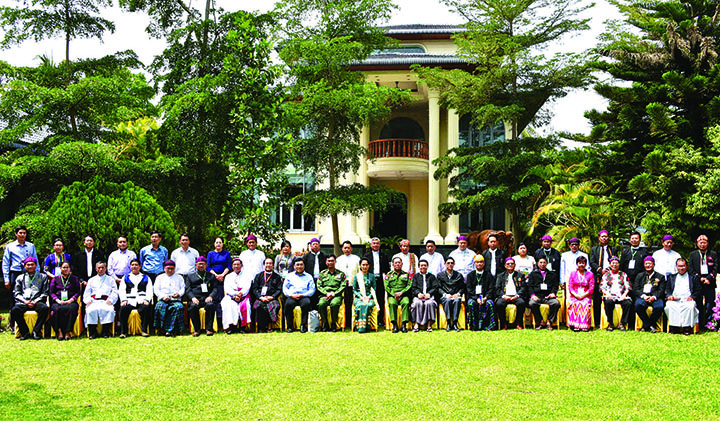
Over the past two years, the Kachin State Government made concerted efforts to achieve all round development in every socio-economic sector to support and encourage small and medium-sized enterprises
The Kachin State Government has made concerted efforts to achieve all-round development in all socio-economic sectors. In order to spur sustainable development, plans are under way to support and encourage small and medium-sized enterprises, development of health and education sectors, and conservation of the natural environment. The authorities concerned of the Kachin State Government have been able to serve the interest of regional residents with sweeping reforms in various spheres during two-year period of the new administration in office. With a view to ensuring the improvement of socio-economic status of local residents, peace and stability in the region and rule of law and multi-sector development, the Kachin State Government had made dramatic efforts for agricultural development, construction of bridges in both urban and rural areas, ensuring power supply and development of education, health and tourism sectors. -
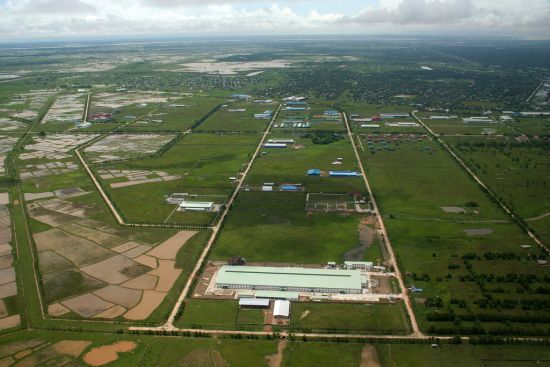
Due to complaints on higher land rental fare for foreign investors, Yangon regional government is planning to develop new industrial zone projects, which will allow land to be leased out by developers at a fair rate
The government is planning to develop the new industrial zone projects in Yangon as foreign investors have to pay higher land rental, according to the pre-briefing on Yangon Investment Forum 2018, at Cooperative Business Centre in Yangon on May 2. Myo Khaing Oo, Joint-Secretary of Yangon Region Investment Committee said: “There currently are 30 industrial zones in Yangon. All land spaces in the industrial zone are owned but some lands remain idle. Foreign investors have to pay higher land rental. They also face difficulties such as higher annual land rentals as they have to hire land spaces from private owners. We have got many such complaints. The investment committee is thinking about a plan that will allow land spaces to be leased out by developers at a fair rate.” In late March, Aye Thaung, chair of Hlaingtharyar-Shwelinpan Industrial Zone claimed that it was essential to draft the Industrial Zone Law as quickly as possible as the country had no such law. -
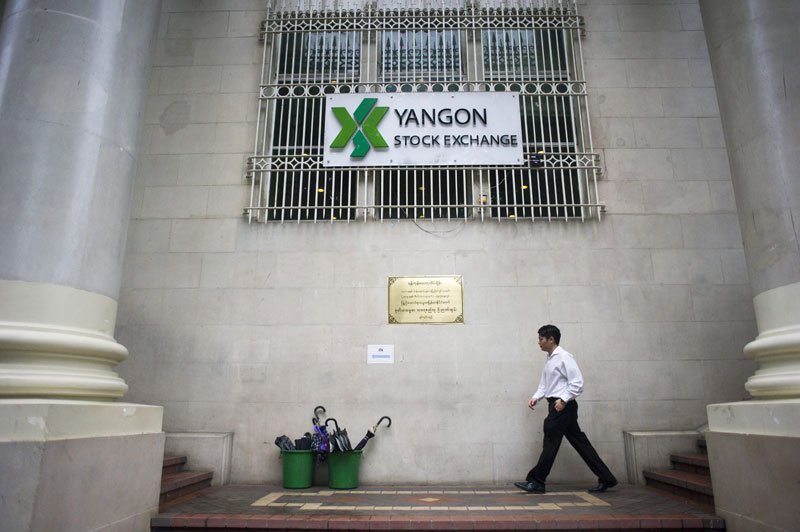
The Investment Application Guidebook, a collaborative project between DICA and GIZ Myanmar, will be launched at the Yangon Investment Forum: it aims to provide easier access to valuable information on investment application procedures
The Investment Application Guidebook, which provide easier access to valuable information on investment application procedures will be launched at the Yangon Investment Forum developed by the DICA with technical assistance provided by the German Cooperation through Deutsche Gesellschaft für Internationale Zusammenarbeit GmbH GIZ (commissioned by the German Federal Ministry for Economic Cooperation and Development), according to a statement. The Myanmar Investment Law (MIL), enacted in 2016, has substantially clarified and simplified the process for investment applications and offers a number of tax breaks, incentives, guarantees, rights and protections for business ventures. By creating a favorable business and investment environment, Directorate of Investment and Company Administration (DICA) and Yangon Region Investment Committee (YRIC) are continuously striving to promote private sector development in Myanmar and to boost domestic and foreign investment.
เกาะติดข่าว
Copyright © 2014 Business Information Center All Rights Reserved.







